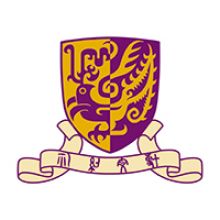Scholars have expressed concern over a proposal to restructure the Chinese University of Hong Kong’s governing council, leaving it with a far higher proportion of external members.
The reforms would cut back seats on the council to 34 from the current 55, according to media reports. It would also result in a substantial rebalancing of the council’s composition.
Internal members, including students and university employees, would see their representation drop from 27 to 11 seats. External spots would also be cut back, but far less so, from 28 seats to 23.
Local media linked the plan to legislators’ perception that CUHK president Rocky Tuan had been too soft on students involved in Hong Kong’s 2019 protests – a claim the university denies.
Meanwhile, academics worry that, if it passes, the plan could erode academic freedom at the university, giving lawmakers on the body outsize influence over decisions made by its administration.
Carsten Holz, a professor of economics at the Hong Kong University of Science and Technology, called the bill “another step in the destruction of Hong Kong academia”.
“The proposal follows a standard pattern of what in 1930s Germany was called Gleichschaltung, the gradual subordination of all institutions in society to a totalitarian regime,” he said.
Such a restructuring would limit CUHK’s autonomy and independence, according to Professor Holz.
“In destroying the self-governing body of the Chinese University of Hong Kong through a political takeover, a totalitarian regime can reshape the institution from the top down. This has predictable consequences for hiring, faculty retention and teaching. It creates a climate in which academic freedom exists on paper only,” he said.
Alexandre Erler, an associate professor at National Yang Ming University in Taiwan, who recently left a position at CUHK, echoed the sentiment.
“This move does seem designed to allow Beijing and their local supporters in Hong Kong to put more pressure on [Rocky] Tuan and the CUHK leadership to crack down even harder on any expressions of political dissent within the university and perhaps even to take active steps to demonstrate ‘patriotism’ via things like ‘national security’ education or oath-taking requirements for university staff,” he said.
Dr Erler added that the institution would “have to take care not to go too far” to avoid driving more international faculty away.
A spokesman for the university denied that there was any link between the proposal and the CUHK administration’s response to 2019 social unrest, noting that it had been in motion for “well over a decade”.
He said institutional autonomy and academic freedom have been “fundamental” to the success of Hong Kong’s universities.
“CUHK looks forward to a constructive consultation process and is confident this will see spirited debate carried out with respect for institutional autonomy,” he said.
Register to continue
Why register?
- Registration is free and only takes a moment
- Once registered, you can read 3 articles a month
- Sign up for our newsletter
Subscribe
Or subscribe for unlimited access to:
- Unlimited access to news, views, insights & reviews
- Digital editions
- Digital access to THE’s university and college rankings analysis
Already registered or a current subscriber? Login










